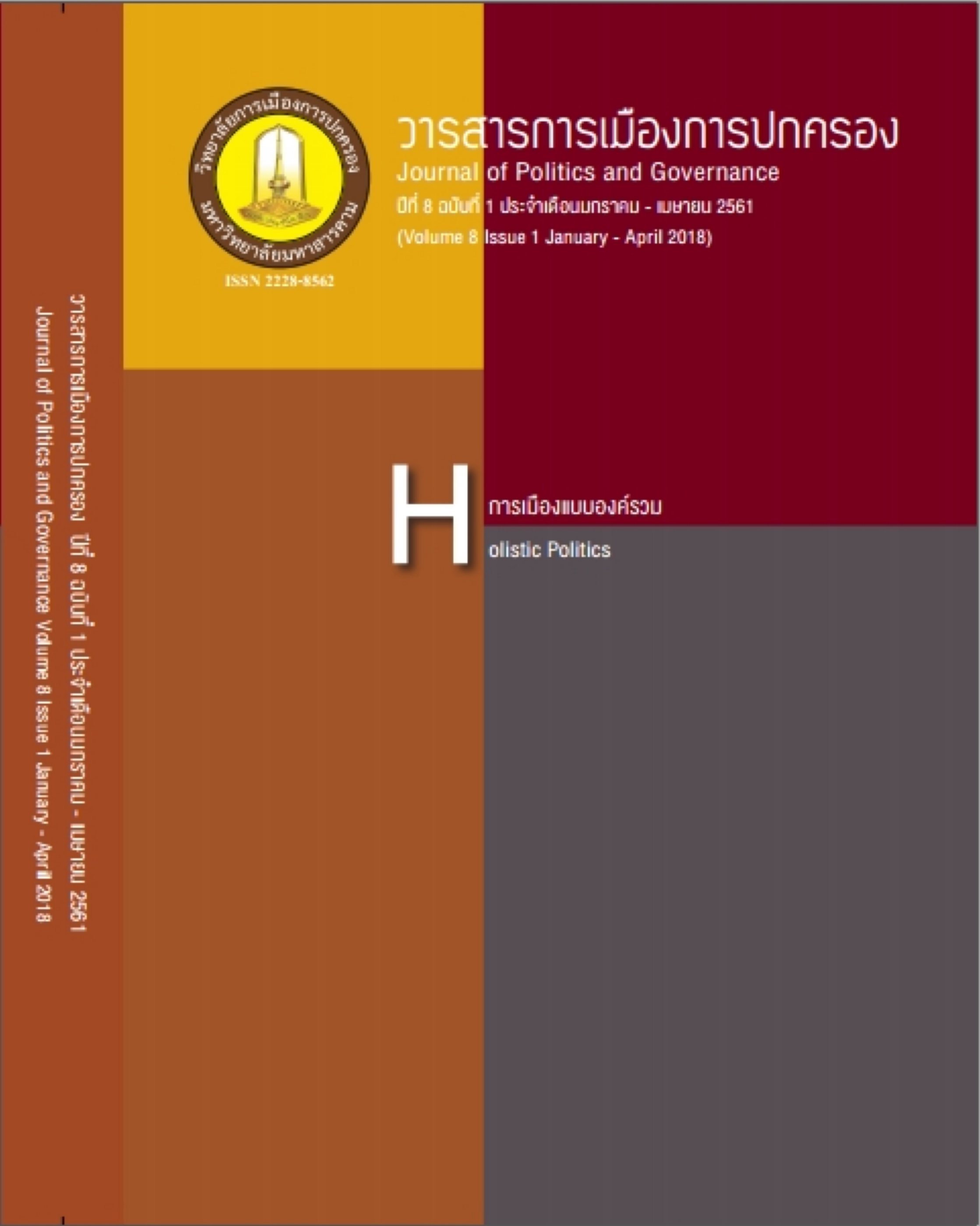Scenarios of Community-based Network Governance on Local Agricultural Tourism Development: A case Study of Bo Kae and Bo Tong Communities, Kud Rang District, Mahasarakham Province
Main Article Content
Abstract
The purposes of this research are : 1) to understand the capacity of these two communities to develop agri-tourism, 2) to analyze scenarios of tourism governance and 3) to study the existing governance networks that would be able to support the tourism management of these two communities. One hundred citizens are chosen and 17 key informants are invited to participate in Delphi research tedinique. Interviews and statistic analysis are also adopted for this study including frequency, percentage, standard deviation and content analysis.The results of this study showed that (1) the total capacity of Bo Kae and Bo Tong communities was high in every dimensions regarding to develop to be the agri-tourism place. To rank from the highest average to the lower ones found that the strength was the first rank followed by the role of community leaders, the demand to participate, the readiness of natural capital, solidarity, and the informal relations. For the weakness, the number shows that it was low. (2) The possible scenarios to develop agri-tourism in the two communities can be set for 5 years within 3 phases that are the beginning (capacity enhancement), the intermediate (the continued development) and the last ones (sustainable orientation). In total, there are 26 activities. (3) Governance networks compounded with regional government bodies, local government networks, educational institutions and non-governmental organizations. They intended to anticipate all activities and phases by considering the relevance to their missions. They also addressed that they could support both formal and informal ways. These strengthen the interdependent relationship between outside networks and community and key persons that look forward together to shared community interests.


